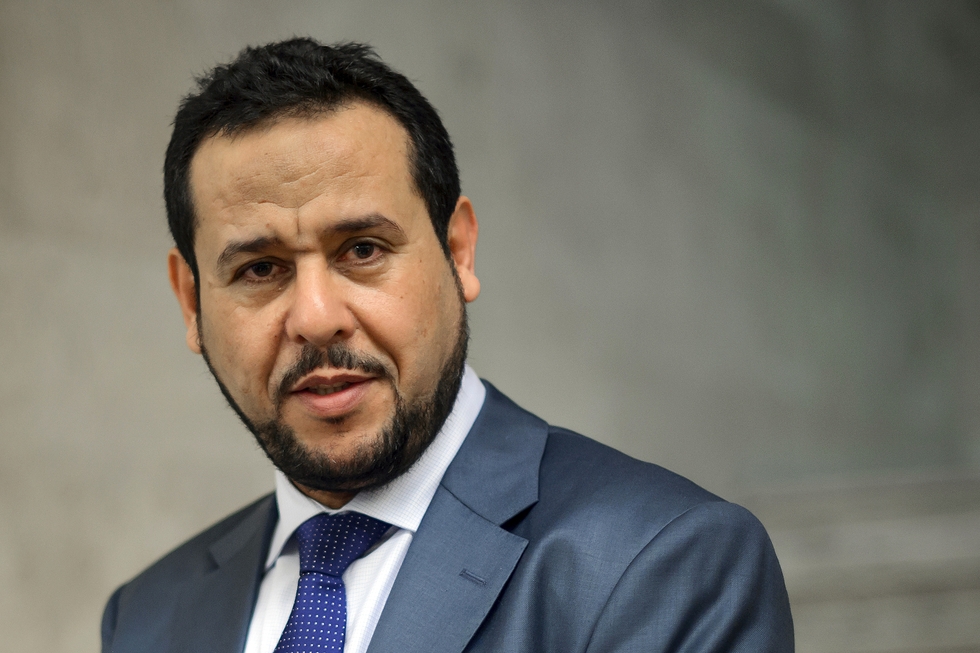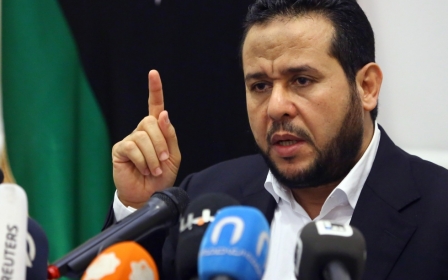OBORNE: Libya rendition case has put Britain in the dock over torture

For more than a decade, very serious allegations have circulated that the British state has been involved in so-called extraordinary rendition – a euphemism for kidnap and subsequent torture - of terrorism suspects.
A great deal is known about the shocking US involvement in torture, thanks to Dianne Feinstein's Senate Committee Report into US abuses.
However, comparatively little has been established for certain about what Britain may have got up to. There are several reasons for this. First of all, British ministers and officials consistently denied that Britain has been involved in any way in torture.
These denials have been very forceful. Here is Jack Straw (then foreign secretary) testifying to parliament 10 years ago: "Unless we all start to believe in conspiracy theory and that the officials are lying, that I am lying, that behind this there is some kind of secret state which is in league with some dark forces in the United States, and also, let me say, we believe that (US Secretary of State Condoleezza) Rice is lying, there simply is no truth in the claims that the United Kingdom has been involved in rendition."
Straw was using the authority of his position as a very senior cabinet minister to make an absolutely emphatic statement that Britain had nothing to do with rendition. This helps explain why questions were not asked.
Money has also been a factor. Ministers have authorised very generous payments to British citizens or residents who claim that Britain was complicit in their torture.
These payments have prevented allegations surfacing in court, meaning that allegations of wrongdoing have not been heard in public.
David Cameron promised an inquiry into allegations of torture when he became prime minister. However, the investigation soon went into abeyance, and there appears to be zero appetite to start it up again.
This is the background to the massively significant case being heard this week in the British Supreme Court. It concerns the former Libyan political dissident, Abdelhakim Belhaj.
Mr Belhaj has long claimed that the British Secret Intelligence Service (SIS), played a role in the "extraordinary rendition" of him and his wife, Fatima, from Thailand to Libya on 2004.
According to Mr Belhaj, he and his family were trying to travel to Britain in order to claim political asylum. They were, however, forcibly seized and transferred to Libyan intelligence in Tripoli. Mr Belhaj was held in prison for six years, and he says he was "very seriously tortured".
I interviewed Mr Belhaj shortly after the fall of Gaddafi in 2011, I will never forget how the pain of what had happened to him was etched on his face.
Unluckily for the British authorities, Mr Belhaj's assertion that Britain played a role on handing him over to Libya is corroborated by very strong evidence.
Shortly after the fall of Colonel Gaddafi, Human Rights Watch discovered correspondence between Gaddafi's head of intelligence, Moussa Koussa, and Sir Mark Allen - then a very senior MI6 official.
In the correspondence, the MI6 officer seems to congratulate his Libyan contact for the "safe arrival" of Abdelhakim Belhaj. He writes: "This was the least we could do for you and for Libya to demonstrate the remarkable relationship we have built up over recent years."
Mr and Mrs Belhaj have subsequently launched a damages claim against the British government, as they are fully entitled to do. They have reportedly been offered, in common with other alleged victims of extraordinary rendition, a cash payment by the British government.
However, Mr and Mrs Belhaj have refused to accept this offer, and have offered to settle for damages of just one pound – so long as they get an apology.
A High Court Judge initially ruled out their claim for damages, accepting British government arguments that court arguments would damage British relationships with foreign powers.
However, this judgement was reversed in the Court of Appeal. The case is now in front of the Supreme Court, which will decide finally whether Abdelhakim Belhaj and Fatima Belhaj can sue the British government.
The consequences of this case are very serious indeed.
It is highly unlikely however that British intelligence officers would have carried out a covert policy of torture without the explicit sanction from ministers. So it is possible that members of the Blair government (in power at the time when most of the acts of extraordinary rendition are alleged to have taken place) could end up facing a long jail sentence.
As we have seen, Jack Straw, who was foreign secretary at the time that Mr Belhaj and family were extradited, was later emphatic in front of a parliamentary committee that “there simply is no truth in the claims that the United Kingdom has been involved in rendition".
This confusion may help to explain why the British government is fighting so hard to prevent claims that Britain was complicit in torture coming to court.
If Mr Belhaj's allegations are sustained, they could bring serious criminal charges on ministers and officials. They could be indicted as participants or accessories in a common law offence of kidnapping and a statutory offence of torture under the Criminal Justice Act 1988, which carries a penalty on conviction of life imprisonment.
In a kidnapping case, there is no defence of national security. In a torture case under the 1988 Act, it could be a defence for the perpetrator or accessory to say that he was only following orders, and that the torture in question was lawful in the country where it happened. But can one imagine either of these defences in open court? They would be more embarrassing to the British Establishment than the original charges.
A great deal rests on the case currently in front of the Supreme Court.
- Peter Oborne was British Press Awards Columnist of the Year 2013. He recently resigned as Chief Political Columnist of the Daily Telegraph. His books include The Triumph of the Political Class; The Rise of Political Lying;and Why the West is Wrong about Nuclear Iran.
The views expressed in this article belong to the author and do not necessarily reflect the editorial policy of Middle East Eye.
Image: Abdelhakim Belhadj, now leader of the Libyan al-Watan Party and former head of Tripoli Military Council, was arrested with his pregnant wife in 2004 at Kuala Lumpur International Airport, Malaysia, transferred to Bangkok, then placed in the custody of the CIA, before being returned to Libya on the rendition aircraft N313P. Here he is pictured during UN-led peace talks in Geneva on August 12, 2015. (AFP)
New MEE newsletter: Jerusalem Dispatch
Sign up to get the latest insights and analysis on Israel-Palestine, alongside Turkey Unpacked and other MEE newsletters
Middle East Eye delivers independent and unrivalled coverage and analysis of the Middle East, North Africa and beyond. To learn more about republishing this content and the associated fees, please fill out this form. More about MEE can be found here.





